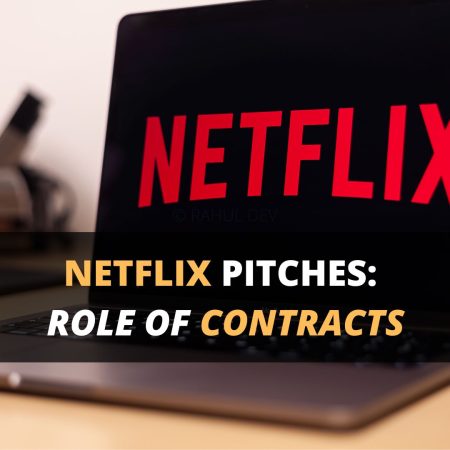Before embarking on your pitch journey, it’s crucial to determine if Netflix is the ideal platform for your idea. With a myriad of streaming services available, such as Apple TV and Amazon Prime, you must carefully assess where your series fits best. Consider Netflix’s evolving user base and whether your show caters to their interests. Look at their current offerings and analyze if your idea complements their lineup.
Pitching Tips for Your TV Show to Netflix To maximize your chances of success, follow these essential tips when preparing your pitch:
i. Stand out from the crowd: Ensure your concept is unique and offers a fresh angle that will grab Netflix’s attention. Your idea should have a compelling hook that sets it apart from existing shows.
ii. Know Your Story Inside and Out: Familiarize yourself with every aspect of your story, including character arcs, story threads, and the overall trajectory of the series. Be prepared to discuss the genre and how it aligns with Netflix’s target audience.
iii. Write the Pilot: A strong pilot episode is crucial for introducing the environment and circumstances of your characters. This episode should captivate viewers, leaving them eager to see more.
iv. Seek Feedback: Consult others for feedback on your pilot, and be open to constructive criticism. Consider submitting your script to screenwriting contests or paying for professional script coverage.
v. Create a Series Bible: A comprehensive series bible is a key component of your pitch. This document should include your logline, series summary, character profiles, complete narrative plan, pilot script, and episode summaries. Your series bible should be concise, generally 6-7 pages, and effectively convey the essence of your show.
vi. Conduct Your Research: Identify industry professionals, such as producers, executives, or actors, who may be interested in your project. Connect with individuals who have a track record of working on similar projects.
vii. Find an Agent: As Netflix doesn’t accept unsolicited submissions, having an agent is essential for getting your foot in the door. Research agencies and their submission guidelines, and target those that are a good fit for your project.
viii. Gain Traction Within the Industry: Participate in script competitions and seek other avenues to showcase your work. Consider alternative mediums to tell your story, such as web series or novels. Gaining recognition in any format can increase the likelihood of a successful pitch to Netflix.
Importance of Contracts, Agreements and Intellectual Property Rights
When pitching your idea to Netflix or any streaming platform, it’s vital to understand the significance of contracts and agreements. These legal documents establish the terms of your collaboration, ensuring that all parties are on the same page. Intellectual Property (IP) clauses are crucial components in contracts and agreements signed between Netflix and content creators, actors, and other stakeholders involved in a project. These clauses define the ownership, usage, and distribution rights of the intellectual property generated during the creation and production of the content.
IP clauses help protect the rights of all parties and ensure that the creative work is used appropriately and according to the agreed terms. Here are some key aspects of IP-related clauses in contracts and agreements:
Ownership: IP clauses specify who owns the intellectual property rights to the content, including copyrights, trademarks, and patents. Typically, Netflix acquires the rights to the content, allowing them to distribute, modify, and sublicense the work as they see fit. However, in some cases, creators may retain partial or full ownership of their intellectual property, depending on the terms negotiated in the contract.
Licensing and sublicensing: These clauses define the extent to which Netflix can license or sublicense the content to third parties, such as other streaming platforms, broadcasters, or distributors. This helps Netflix monetize the content, while also ensuring that creators receive appropriate royalties or compensation for the use of their work.
Moral rights and attribution: Moral rights refer to the creator’s right to be recognized as the author of their work and to preserve the integrity of their creation. IP clauses may specify how creators and actors are credited for their contributions, as well as the extent to which the work can be modified, adapted, or otherwise altered.
Warranties and representations: These clauses require content creators and actors to confirm that their work is original and does not infringe on any existing intellectual property rights. Additionally, they may have to guarantee that they have obtained all necessary permissions, licenses, or clearances for the use of any copyrighted materials, such as music or images, featured in the content.
Indemnification: In case of any claims, disputes, or legal actions arising from IP infringement or other related issues, indemnification clauses protect the involved parties by specifying who will be responsible for covering any losses, damages, or legal fees.
Confidentiality: These clauses ensure that sensitive information, trade secrets, or proprietary knowledge related to the project remains confidential and is not disclosed to unauthorized parties. Confidentiality clauses help protect the intellectual property rights of the content and maintain its competitive edge in the market.
Termination and reversion: In some cases, contracts may include clauses that allow for the termination of IP rights or the reversion of these rights back to the original creator under specific circumstances. For example, if Netflix decides not to produce or distribute the content, the rights may revert to the content creator, allowing them to seek alternative distribution opportunities.
In conclusion, IP-related clauses in contracts and agreements between Netflix and content creators, actors, and other stakeholders play a vital role in protecting intellectual property rights, ensuring proper usage and distribution of the content, and maintaining a fair and transparent relationship between all parties involved.



